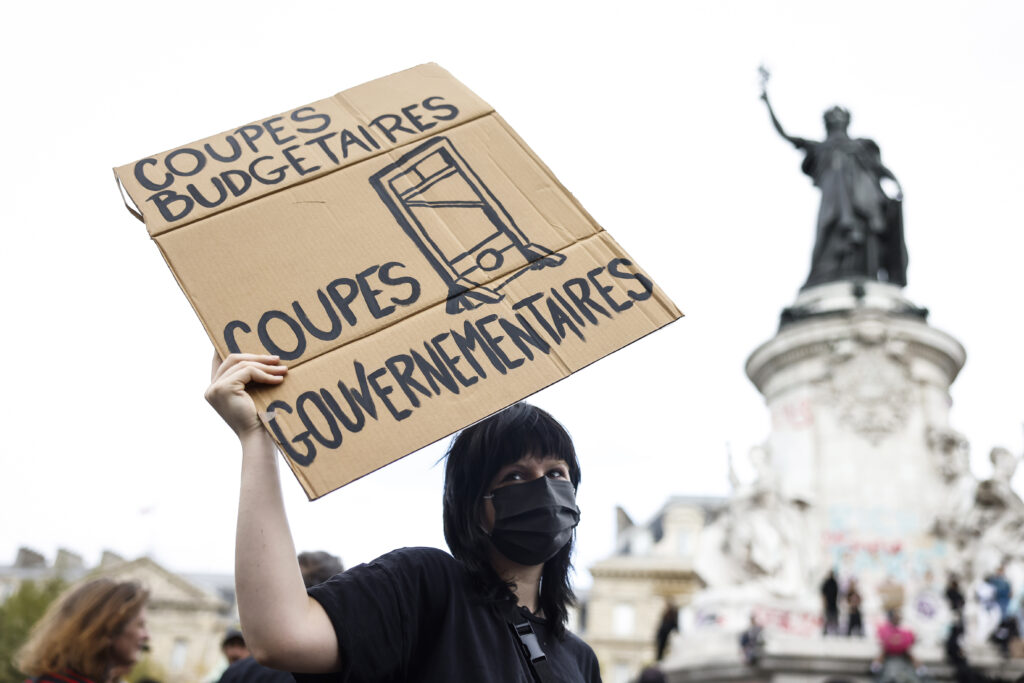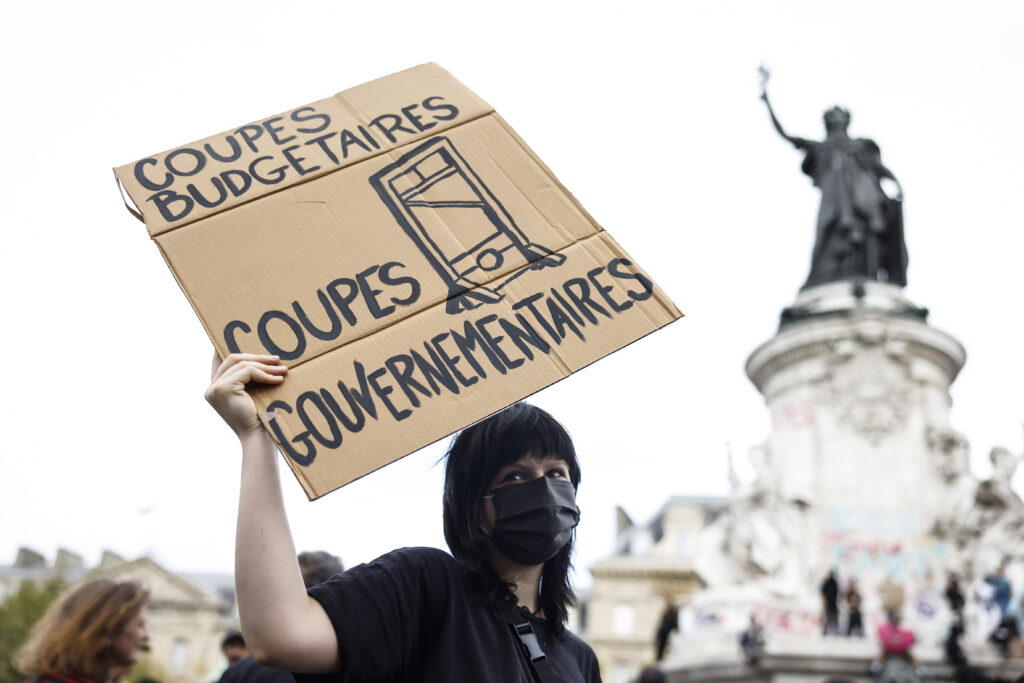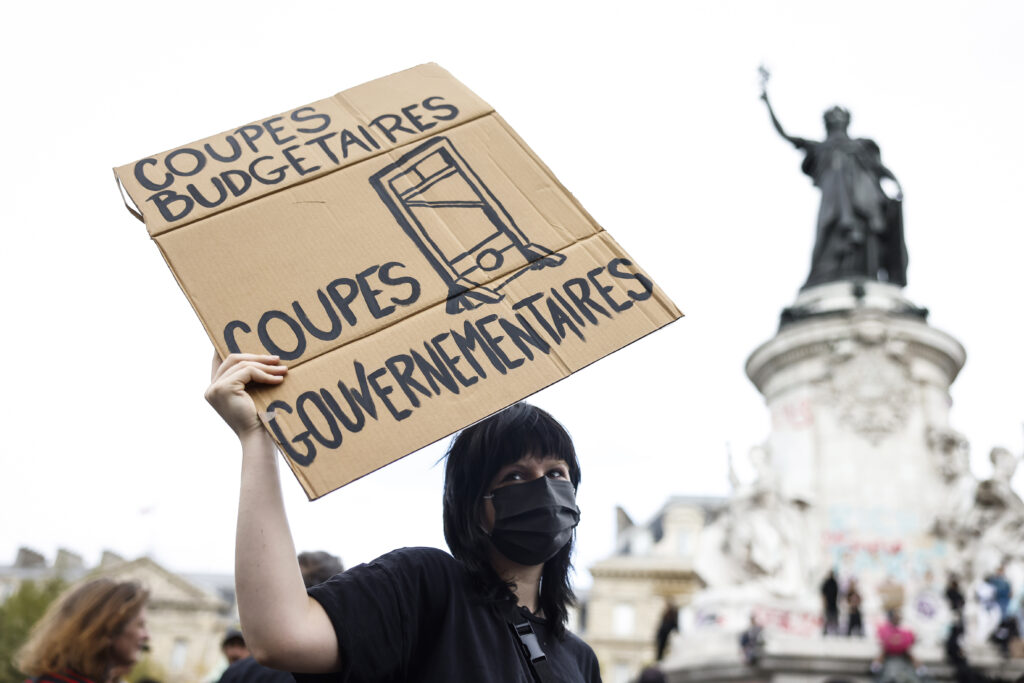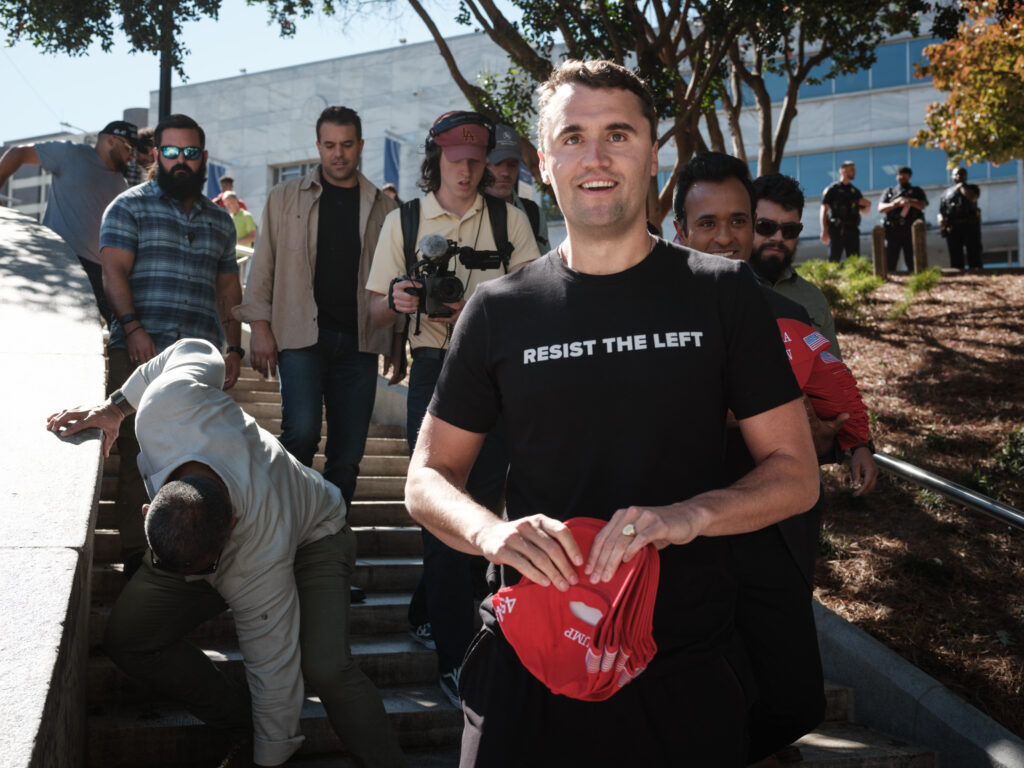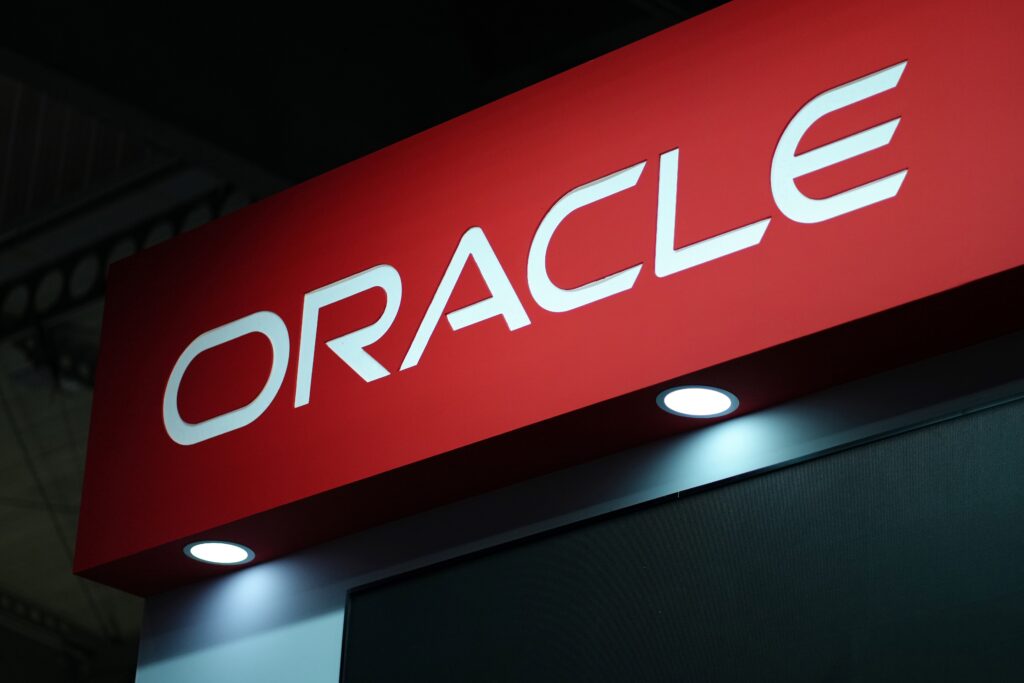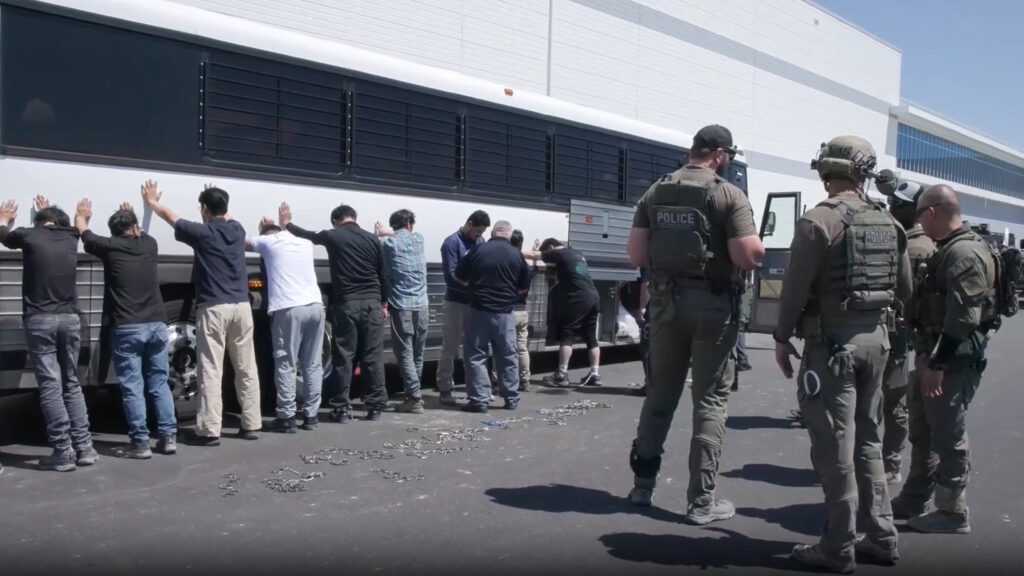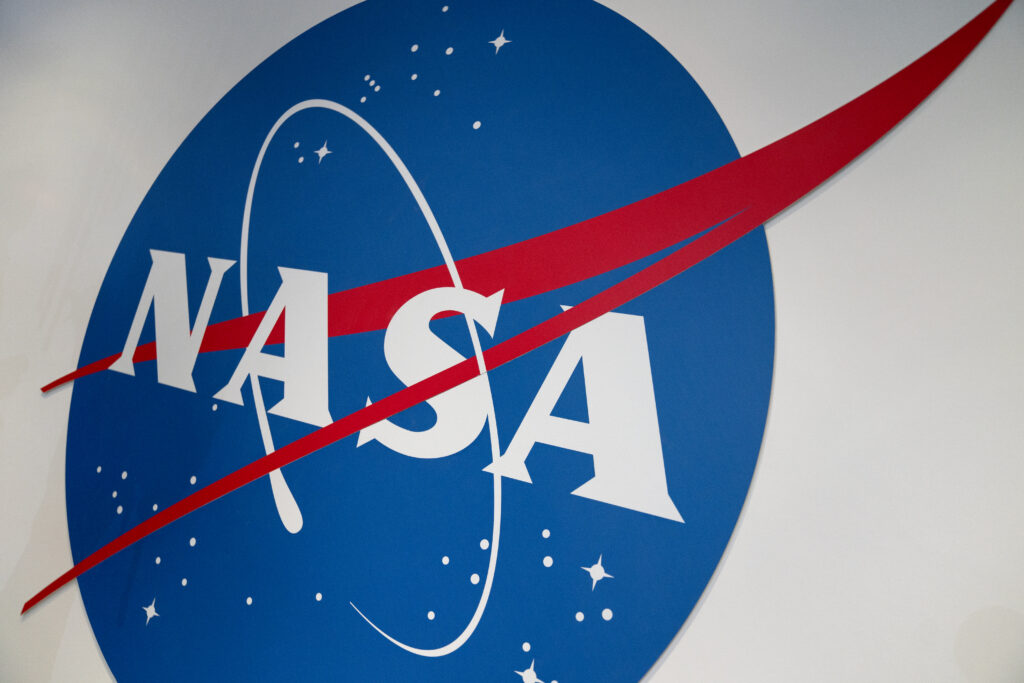“Bloquons tout”: des dizaines de milliers de manifestants, des tensions mais pas de paralysie
Contre l’austérité, les “inégalités” et le “déni” démocratique : la France a connu un 10 septembre sous tensions, avec des centaines d’actions et d’interpellations lors d’une mobilisation née sur les réseaux sociaux, dont l’ampleur a dépassé celle du 1er mai avec quasiment 200.000 participants.Le ministère de l’Intérieur a fait état de “596 rassemblements” et “253 blocages” réunissant “197.000 participants”, selon le bilan établi en soirée de cette journée “Bloquons tout” relayée depuis plusieurs semaines sur des messageries et soutenue par la gauche, la CGT et Solidaires.De Toulouse à Lille, en passant par Bordeaux, La Rochelle, Nantes, Rennes, Paris: de nombreuses métropoles ont vu défiler des cortèges fournis, encadrés par des forces de l’ordre en grand nombre (80.000 policiers et gendarmes mobilisés), avec une participation dépassant largement celle recensée par les autorités lors du 1er mai 2025 (157.000 manifestants). Plusieurs milliers de manifestants ont bravé la pluie jusqu’en soirée à Paris, dans une ambiance festive place des Fêtes, plus tendue place de la République. “On veut des services publics qui fonctionnent, plus d’impôts sur les riches moins d’impôts sur les pauvres, une plus juste répartition des richesses”, a clamé à Paris Jean-Baptiste, 30 ans et salarié dans le social, qui n’a pas souhaité donner son nom de famille, comme plusieurs autres manifestants.- “Déni” démocratique -“Je voudrais qu’il y ait une meilleure répartition de l’argent et aussi que les politiques donnent une meilleure image, surtout sur leurs dépenses”, a expliqué à La Rochelle Christian, 59 ans, travailleur dans le service enfance-jeunesse d’une collectivité locale.D’autres manifestants pointaient un “déni” démocratique, visant notamment Emmanuel Macron: “Les politiques n’écoutent pas les urnes”, selon Bastien, étudiant de 23 ans, qui a défilé à Rennes avec 10.400 personnes, selon la préfecture qui a fait état de 36 interpellations.Cette mobilisation nourrie de revendications très diverses, dont certains aspects ont résonné avec les Gilets jaunes d’il y a sept ans, survient au lendemain de la nomination de Sébastien Lecornu à Matignon.”La nomination de Sébastien Lecornu est un mauvais signal qui risque, les mêmes causes produisant les mêmes effets, de conduire à une nouvelle dissolution”, selon la maire écologiste de Strasbourg, Jeanne Barseghian, qui a manifesté. Depuis le perron de l’Elysée, M. Lecornu a promis “des ruptures”, sur le fond comme sur la forme.- Rendez-vous le 18 – Plusieurs rassemblements ont été émaillés d’incidents, de gaz lacrymogènes et d’arrestations. Selon un point établi à 23h00, le ministère de l’Intérieur a recensé 540 interpellations en France, dont 211 à Paris, et 415 gardes à vue, dont 110 à Paris. A Nantes, où 34 personnes ont été interpellées, un manifestant a été hospitalisé “après avoir été incommodé” par des gaz lacrymogènes et 16 policiers ont été légèrement blessés, selon la préfecture.A Toulouse, des confrontations musclées ont marqué la fin des rassemblements.Dans le centre de la capitale, un incendie a endommagé la façade d’un immeuble, peut-être provoqué involontairement par une intervention policière, selon le parquet. A Rennes, un bus a été saccagé et incendié par des manifestants, a rapporté Star, le réseau de transports en commun. Le directeur général de RSF, Thibaut Bruttin, a regretté “d’apparents actes de brutalité des forces de l’ordre commis contre les journalistes qui couvrent les mouvements sociaux”.Le ministre démissionnaire de l’Intérieur Bruno Retailleau s’est félicité de “la mise en échec de celles et ceux qui voulaient bloquer le pays” quand le leader de La France insoumise Jean-Luc Mélenchon a qualifié de “succès” cette “manifestation auto-organisée”. Quelques blocages ont été recensés sur les routes. Sur les rails, pas de très grosses perturbations, mais des “actes de malveillance”, selon la SNCF. La station Châtelet-Les Halles à Paris, noeud majeur en Ile-de-France, a été fermée à la demande des forces de l’ordre. Idem pour son centre commercial. Interrogés par l’AFP, les réseaux bancaires n’ont pas constaté de baisses notables des transactions par carte bancaire, ce qui était l’une des modalités préconisées par certains initiateurs du mouvement.Après cette journée, soutenue seulement par la CGT et Solidaires du côté des syndicats, l’intersyndicale appelle à son tour les salariés à la grève le 18 septembre.”Cette mobilisation est un succès”, a salué la CGT dans un communiqué. Sa leader, Sophie Binet, a souhaité sur RTL que celle “du 18 le soit encore plus”.
